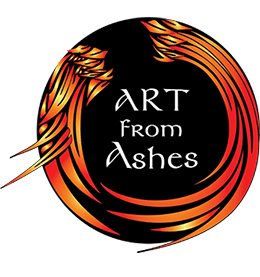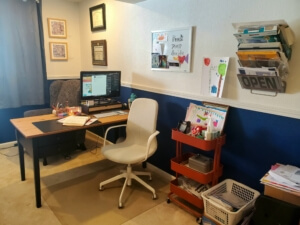Dealing with pandemic burnout
April 5, 2021 • The New York Times Arts and Ideas article
Are you experiencing a lack of motivation? Is it taking you double or triple the time to accomplish basic tasks? Are the days of the week blurring together? Welcome to the late stage of the pandemic, which has “left many of us feeling like burned-out husks, dimwitted approximations of our once-productive selves,” Sarah Lyall writes in The Times.
The pandemic has left many reeling from a loss of health, of income, of loved ones or of a normal way of life. Though circumstances vary, the mood is often similar.
“When people are under a long period of chronic, unpredictable stress, they develop behavioral anhedonia” — a reduced ability to take pleasure in activities — Margaret Wehrenberg, an expert on anxiety, said. “And so they get lethargic, and they show a lack of interest — and obviously that plays a huge role in productivity.”
How are people trying to cope? Some are meditating, turning to alcohol or edibles, going for walks or re-engaging with a spiritual practice. Others are finding pockets of joy where they can — sending postcards, exchanging gifts with neighbors or adopting pets. And some have embraced the notion that it’s all right not to be productive during a period of major global upheaval.
“You’re supposed to be inventing something or coming up with the next big business idea,” one person told The Times last year. “I’m trying to be more OK with just being.”
Michael Hooten, Board of Directors
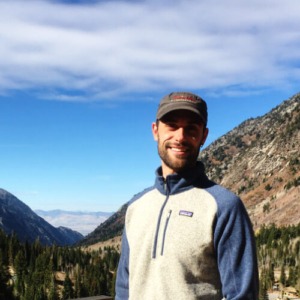 April arrives with the opportunity to recognize and participate in the 25th National Poetry Month. In the aftermath of excessive societal separation, continuous quarantine quandaries and repulsive heights of violence, one finds plenty on which to reflect, write, refocus and redesign. It is definitely a time to make art from ashes…
April arrives with the opportunity to recognize and participate in the 25th National Poetry Month. In the aftermath of excessive societal separation, continuous quarantine quandaries and repulsive heights of violence, one finds plenty on which to reflect, write, refocus and redesign. It is definitely a time to make art from ashes…
Wouldn’t it be wonderful if public education and youth services included knowing the Self and exploring one’s personal identity? Where else do we provide access to and emphasis on the importance of understanding and deepening worth and respect of the Self? You might be thinking, “Nowhere!.. Perhaps, with some luck there is time in the home or among peers?”
What if when you met a new colleague or business partner downtown for lunch, the discussion left you feeling inspired to live life fully and reflect on how to be the most authentic person you could be? Most people would casually say, “yeah, that would be nice” and continue their day without pondering how to nurture our youth, our peers and our local communities towards self-actualization. Full competence at self-expression is a feat that can feel intimidating to fathom, and it is easy to accidentally avoid it amidst all the crises and overwhelming chaos in our world today. What would be the best use of energy and resources to dissolve the chaos and dissolution?
Without a doubt, there is no better answer than to invest in our communities’ youth! Mental health, transformed identities, knowledge of Self, and ability to authentically express are the roots in the garden where we live. The foundation of our severed societal systems and crushed community connection is the youth.
Our unique, grass-roots nonprofit provides access and empowerment for local youth with programs like Phoenix Rising, where participants practice expression, connection and transformation first-hand while activating the entire brain—not just part of it. Balancing the brain hemispheres with AfA’s award-winning curriculum invests in the tools for maturity and self-awareness rather than a mere correct multiple choice answer. These are the tools that will stop burning out our public service workers, educators, and youth development professionals with short-term solutions and that will allow our youth to create their own best future.
AfA’s resilience shines through its diverse, resourceful team who overflows with determination while working with members and supporters to maintain funds and opportunities for youth. The creativity, adaptability and sheer grit displayed in continued community and program offerings during quarantine reflects the valuable growth to which Art from Ashes invites participating youth. Art from Ashes has steadfastly held the door open cost-free, inviting youth to find and wield their voices even while navigating the challenges of remote access and technology. While physical and emotional distance during delicate healing has surely been less than ideal, Art from Ashes has maintained its mission of delivering benefits of a deeply potent curriculum to youth when they needed it most during the isolation of the covid-19 pandemic. Art from Ashes has truly lived up to its name as it prepares to empower our youth to rise from the ashes of harsh mental and physical hits in recent months and years. Join Art from Ashes however you can to support the balanced, self-actualized society we could have if we invested more in the whole development of local youth, the left brain… and the right one!
“Tell me, I’ll forget. Show me, I’ll remember. Involve me, I’ll understand.”
—Lao Tzu
Celeste Seiler, Director of Operations
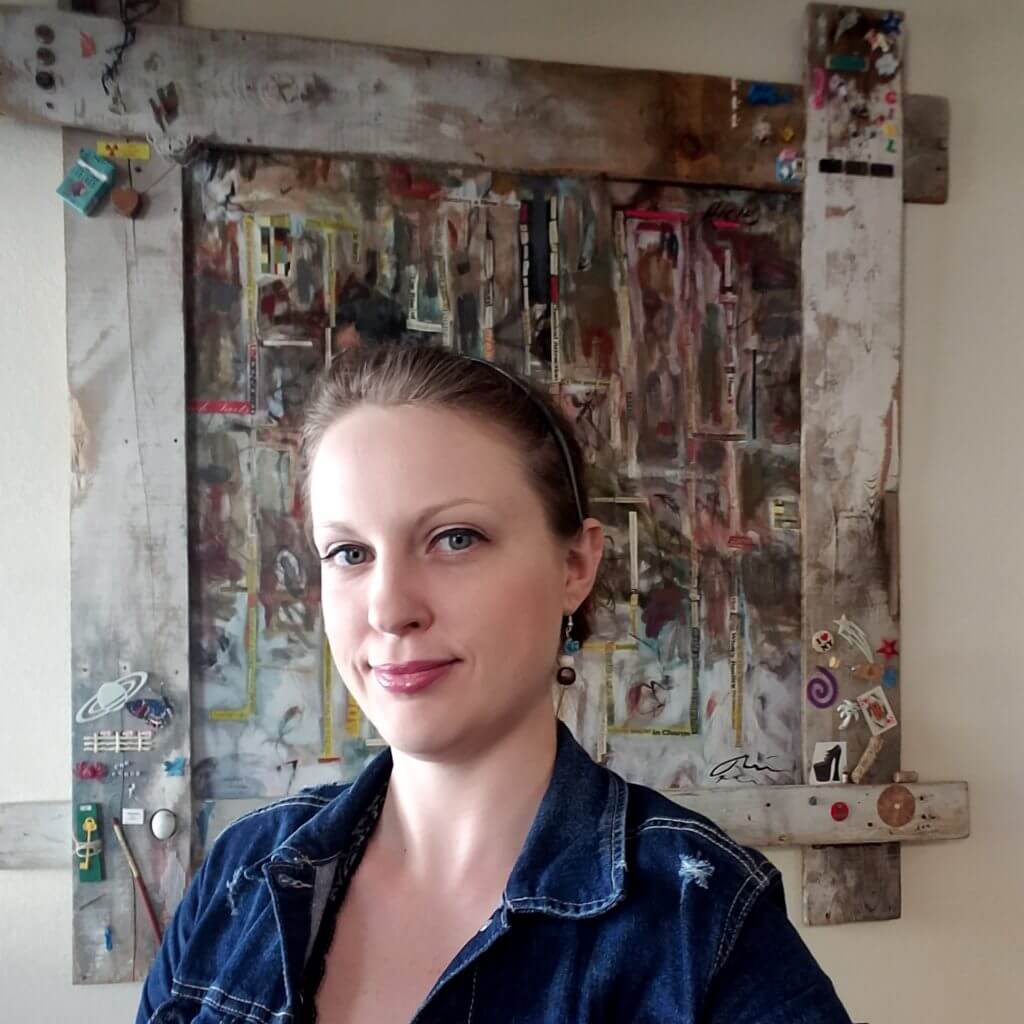 Not long before the pandemic consumed all our lives, I was attempting to figure out a way to work from home more often so that I could spend time with my family. How ironic. I don’t want to say I had something to do with this, but be careful what you wish for.
Not long before the pandemic consumed all our lives, I was attempting to figure out a way to work from home more often so that I could spend time with my family. How ironic. I don’t want to say I had something to do with this, but be careful what you wish for.
So much has changed for everyone, all in different ways. Along with the waves of COVID cases rising, came waves of emotions. I shot back and forth from depressed to inspired to numb. Learning to take better care of myself was one of the positives that emerged from this past year. Focusing on what’s important to me and what brings me joy made things a teensy bit better.
I’ve always enjoyed gardening season, but I really threw myself into it last year. I got to know our neighbors better sharing my produce. I found a creative outlet that helped me express myself and connect with others in a new way. And my husband and I took on a brand-new adventure of fostering a teenager. Having three kids in the house remote learning was a huge challenge. We rolled with it all the best we could.
My husband works in healthcare as a RN and he was the first to bring COVID home to all of us. We got it early on, about a week after the nation went on lockdown. Luckily, it did not affect us severely. Don’t get me wrong, it absolutely sucked, but we managed it. Through that time I realized how many wonderful people we have in our lives. So many reached out to help us. We had friends bringing us groceries and things to help pass our time in quarantine. Art from Ashes gave me the much needed time off to focus on recovering. I’m very grateful for that.
Carving out a space for a home office became necessary because Art from Ashes doesn’t get knocked down easily. Work must go on for the youth, so we were still kicking ass and figuring out ways to continue reaching youth with our programs. We quickly shifted our program to a virtual setting. We tried out a couple things before we got the hang of it, but I’m going to toot our horn and say we did pretty well with the shift considering never doing anything like this before. It was a lot of work. Thanks to the help of our supporters, we made sure not to compromise our mission and thrived.
I believe everything that we have endured in the past year brought us all closer together. It sure does make work easier when you like the people you work with. This team we have is incredible. Our volunteers have even stuck with us through all that has happened and we couldn’t have done it without them. We hold the space for each other when we’re going through the feels and there have been plenty of crying with laughter fits along the way.
It’s been a year. We’ve discovered just how creative we are as an agency and things will forever be changed because of it. One thing that we absolutely loved from all of this was being able to connect with people much further than our Denver community. I mean, we have a youth ambassador that lives in Canada now. How cool is that?! Our virtual presence has expanded in a way that will allow us to continue doing that even when we are safely in-person again.
There’s also been a lot of education (not sure that’s the right word to use) surrounding the BLM uprising. The tragedies that took place over the past year, and are still occurring, has resulted in highlighting the important work nonprofits are doing. Our staff members have joined countless discussions to ensure we are continuing to align our values with our work. We have assumed a shared power model to ensure all voices are considered in our strategic planning. We will continue to fight for the equity and inclusion of our BBIPOC community members.
Because we believe in the power of words, we have engaged in weekly writing prompts for staff as a way of checking in with each other through all that we endured. I wrote the following carefully selected poems in three minutes—as we do—for these prompt sessions:
Click below for Celeste’s poems…
Laura Peña, Programs Manager
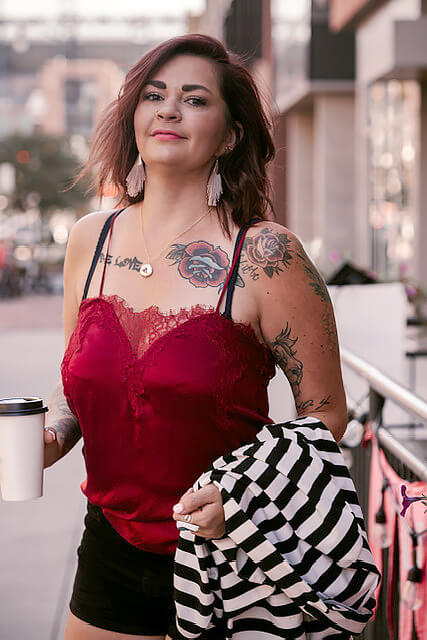 Pandemics don’t come into my world. I hear this on the news happening in other countries but no, not here in my backyard! Then, walking down my street with my dog, I begin to see more and more people with masks on their face just to take out their trash. Restaurants are beginning to reduce the number of individuals allowed to help keep social distancing, yet death tolls and positive cases continue to skyrocket. Then, before I knew it, this wasn’t something on the news, but something smacking the world in the face. This is real and happening in EVERYONE’s backyard.
Pandemics don’t come into my world. I hear this on the news happening in other countries but no, not here in my backyard! Then, walking down my street with my dog, I begin to see more and more people with masks on their face just to take out their trash. Restaurants are beginning to reduce the number of individuals allowed to help keep social distancing, yet death tolls and positive cases continue to skyrocket. Then, before I knew it, this wasn’t something on the news, but something smacking the world in the face. This is real and happening in EVERYONE’s backyard.
Art from Ashes was so full of life and our office was thriving with laughter and touch. Suddenly all staff, volunteers, and youth were trying to keep a connection where touch was no longer allowed—wondering how we were going to stay true to our mission with no space to hold onto it. Tears, anxiety at its peak, and curiosity about what we were going to do hovered in every meeting for weeks leading into months. Following in the footsteps of others, we experimented with virtual meetings, gatherings, and games to keep the fun alive. After getting our feet wet, soon Art from Ashes was creating magic for all others to follow! We kept in constant communication with ALL youth who had ever participated, offering free virtual Wednesday prompts. We know that during this time it is more important than ever to hear what they need to say. We began using Instagram to ensure that youth who want to share have an audience and can be heard by anyone and everyone.
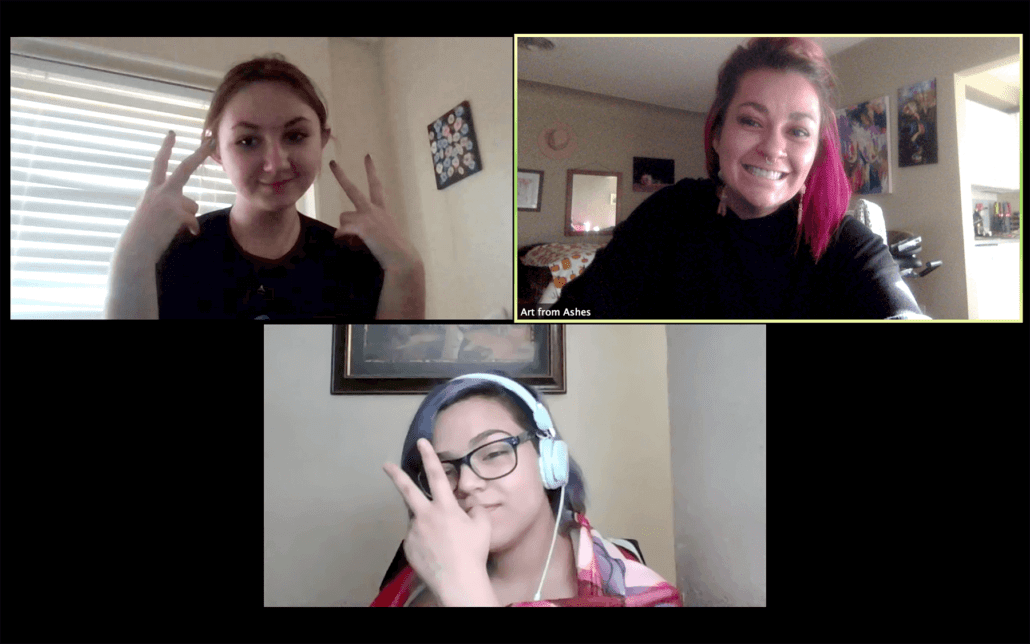 During the transition, those of us working in programs at Art from Ashes, commonly heard the word “no” when offering our services to schools and organizations in flux, which left us feeling worried about our future. That fear soon turned into energy, and a new virtual curriculum was created to reach young people through their screens. A new way of reaching youth began to form for us. They were showing up. A core group of youth evolved into the youth ambassador program, and we began reaching young people from all over the world. This success in changing our mindset. Being creative is what makes us able to sustain anything this world brings our way and keep providing health and hope to young people.
During the transition, those of us working in programs at Art from Ashes, commonly heard the word “no” when offering our services to schools and organizations in flux, which left us feeling worried about our future. That fear soon turned into energy, and a new virtual curriculum was created to reach young people through their screens. A new way of reaching youth began to form for us. They were showing up. A core group of youth evolved into the youth ambassador program, and we began reaching young people from all over the world. This success in changing our mindset. Being creative is what makes us able to sustain anything this world brings our way and keep providing health and hope to young people.
I have found myself experiencing all emotions through this pandemic. Happy to have more time at home, watch more Netflix, and support local restaurants with all the delivery services, more time to paint and be creative with this new time off. Yet, the cost was not being able to hug my mom or dad, unable to laugh in the office with my co-workers, and wondering how may more days, months or years this was going to go on, while watching the world’s death count skyrocket. Now, Denver is opening back up and we’re feeling the heartbeat of the city begin to grow. There’s a sense of victory—some pride—that I was a part of a nonprofit that said we will still show up and be there for our youth. We will survive.
On top of a world pandemic there were so many tragedies from this past year. BLM has been and will continue to be a huge topic of conversation within this organization. What can we do, what is our mission, and how can we provide the best for the youth? We have been to many trainings and seminars on “How to be antiracist” both as individuals and as an organization, and more importantly, have developed an action plan by listening to the voices and direction of BBIPOC in our agency and our community. This mostly for me highlighted how important we are for the youth who have so much they need to say in a space that never censors them. We are here to fight for youth in the BBIPOC community and will continue to have a role in dismantling structural racism in our organization and in our lives.
Theo Wilson, Community Liaison
The Pandemic, Pressure, and Perception
By Theo E.J. Wilson
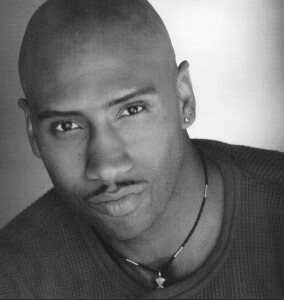 The world seemed to break just two weeks after my daughter was born. In fact, the pandemic was declared on her projected due date, and had she been born on time, I likely would not have been able to be in the delivery room. Thank goodness she arrived early.
The world seemed to break just two weeks after my daughter was born. In fact, the pandemic was declared on her projected due date, and had she been born on time, I likely would not have been able to be in the delivery room. Thank goodness she arrived early.
Shortly thereafter, my money began to dry up. As a public speaker, you can’t speak when there’s no public. University after university, corporation after corporation, their doors closed. I watched opportunities shrink as my daughter was growing. Additionally, my fiancée and I had just moved into new luxury apartments. The rent was $600 per month higher than my previous location, but well within budget had my income not been cut off. Financial woes began gnawing at the very fiber of our relationship.
Being a person who has manic depression, I cope by going to the gym. It closed. Being a community activist, I go to rallies and forums to build allegiances. There were none. Being an extrovert, I enjoy the company of other humans at lively events. All canceled. Not only was my livelihood, but my life itself being seemingly constricted into nothing.
My father built the largest Black-owned tour guiding company in the Rocky Mountain region, A Private Guide Inc. After watching him build it from scratch for 28 years, it shut its doors. Tourism grinded to a halt due to the shutdowns. There went my inheritance, an extremely rare fortune for Black Americans.
I began to engage in vigorous public debates on social media about the merits of the approach to fighting the virus. Most were fruitless and draining. Ultimately, it boils down to perception of the facts. Like a Rorschach test, people see themselves in it, wherever they land. All I am is grateful that I survived thus far, and that my family is taken care of.
Art from Ashes reminded us all that the youth needed particular focus during the pandemic. While statistically they were least likely to be harmed by the disease, they were the most vulnerable to the shutdowns. From depression and disconnection, to being trapped at home with an abuser, the youth paid the price for stopping the world. Thus, Art from Ashes was the only outlet for many of them.
Working with the youth gave me a sense of purpose when I needed one in the midst of fighting my own despair.
We’re not out of the woods, but the fear seems to be subsiding in general. With clear minds and hindsight, let’s hope we learn the most pressing lessons the pandemic tried to teach us, whatever they may be.
Daniella Riggio, Youth Ambassador
When was the moment you realized the pandemic would change your life?
I was pregnant and living in a barn when the pandemic hit and shut everything down. I realized that it would not only change my life, but my son’s life as well. Having no previous kids, I didn’t know what labor would be like, much less labor during a pandemic… My family couldn’t visit me in the hospital after I had Leo. I could only have one guest and couldn’t exchange that one with any other guests. So, I got to be with my ex-fiancé throughout labor and delivery. Not only this, I turned 21! I was pregnant, as aforementioned, and everything was closed. So no fancy birthday party or celebratory drinks. On another note, statistically, domestic violence and abuse was reported to skyrocket while everything was quarantined. This has also been the case for me in my relationship. (I included a poem about that below and the PTSD that comes with it.) If you’re in a dangerous situation, no matter how scary it may be, there are people out there who can and will help you!
Is there anything you feel grateful for that you may have been taking for granted pre-pandemic?
I’m grateful that things have started opening back up—with restrictions—so I will be having my 21-again birthday. I am also grateful for the time I do get to spend with friends and/or family IN PERSON, although socially distanced and with masks. As they not only would love to see baby Leonidas growing into his own person, but it is human nature to be connected. Isolation creates insanity. I am a very social person, so not having really been able to be with people this past year has been tough on my already fragile mental health.
What does your “after” pandemic look like? How will you and your life be different?
After the pandemic, I will be able to rawdog the air again. I will be able to see and hug my dad without wearing a mask. I won’t have to worry about making sure I have hand sanitizer and my stupid mask everywhere I go. I won’t have to be on edge about Leo possibly getting sick with COVID-19 and not being able to afford medical costs… or worse. Following are several poems at AfA that I have written either while pregnant when the pandemic hit or at any point throughout this weird time in our lives, as well as resources for help.
Click below for Daniella’s poems…
•
Sarah Lanzarotta, Director of Programs
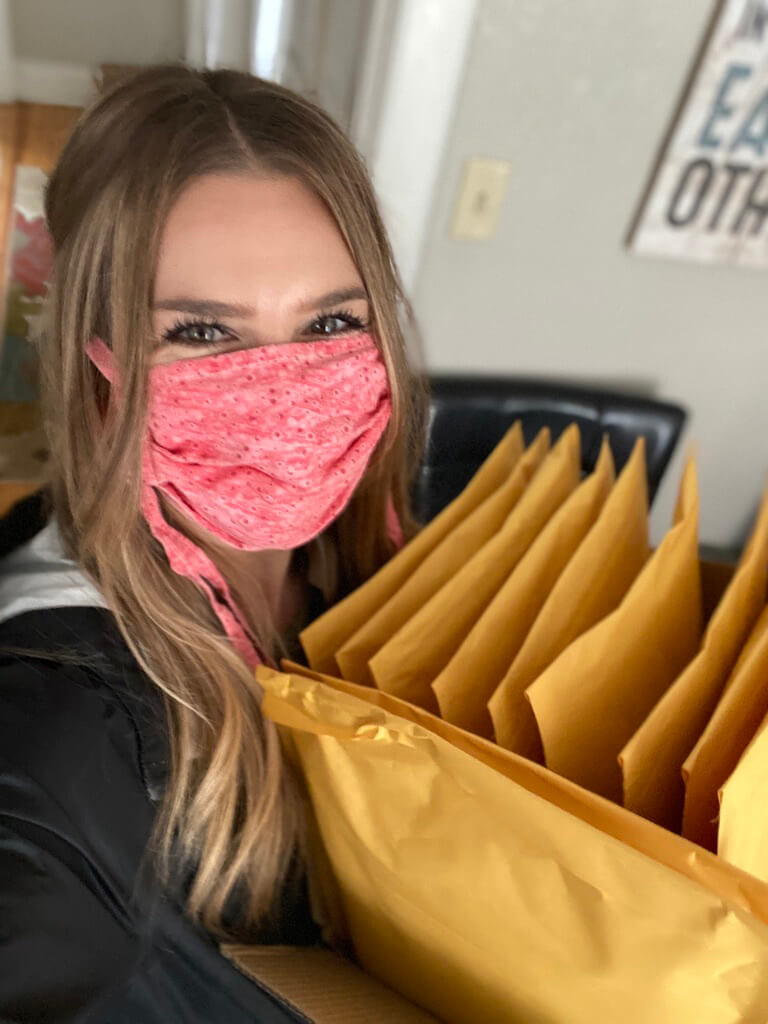 A year ago I was driving all over the city, facilitating workshops with groups of amazing youth during the week. That weekend in March 2020 when we found out about the pandemic, I went out dancing with some friends and brought my little brother along, who had just moved to Denver to pursue his music career. I wanted to show him all of the potential venues he could perform in. The coronavirus had been a topic of discussion, but nothing to worry about. Then Denver cancelled their infamous St. Patrick’s Day parade. Then the Rockies cancelled Opening Day. Then the NBA cancelled their season. As an avid sports fan, that’s when it hit me that this was serious. Sports just don’t get canceled.
A year ago I was driving all over the city, facilitating workshops with groups of amazing youth during the week. That weekend in March 2020 when we found out about the pandemic, I went out dancing with some friends and brought my little brother along, who had just moved to Denver to pursue his music career. I wanted to show him all of the potential venues he could perform in. The coronavirus had been a topic of discussion, but nothing to worry about. Then Denver cancelled their infamous St. Patrick’s Day parade. Then the Rockies cancelled Opening Day. Then the NBA cancelled their season. As an avid sports fan, that’s when it hit me that this was serious. Sports just don’t get canceled.
I consider myself lucky that at this point, I was only responsible for myself. And the beginning of quarantine was weirdly both scary and fun? My husband and I played so many games, started a new Sunday brunch tradition, talked to friends and family way more than usual, went for walks (we never went for walks before), and got to spend a lot of time together that we hadn’t had, like, ever. And also, to-go margaritas from our favorite taco place was a definite bonus! But at the same time, I was terrified to get the virus for fear of spreading it to a loved one, feeling really cooped up, and I have never felt lonelier in my entire life. I really missed my friends and family members.
This past year, our partners—teachers in particular—have been the most stressed out people I think I have ever seen. You can see in their eyes how tired and defeated many feel.
But they keep showing up for the youth, just like we do, because many of these kids have no one else.
Isolation hit in different ways, and our relationships became defined by distance. At first, working from home was really nice. No traffic to deal with, more sleep. It was getting warmer, and I could work outdoors. That was back when we thought this whole pandemic would last a month tops. (hahaahahaa!) As soon as we realized that this was going to last a lot longer than we thought, the workload became HEAVY. We had to adapt our entire curriculum to make sense in a virtual setting. And we really wished we didn’t have to, because it didn’t feel right to not be present for the youth. Facilitators create a safe and brave space for the youth to share their voices—how were we supposed to do that over a screen? We’re trying to get them off of the screens, dammit!
What we’ve learned
But we did the work. We got it done, and it’s been more of a success than we anticipated. We can reach youth outside of Denver, and those who have no means of transportation or who are limited by physical challenges can now participate. In a lot of ways, it helped us work through some barriers we had been experiencing before the pandemic. But it was a lot of work.
We spent hours designing Phoenix Rising Writing Kits that I put together in my teeny tiny living room for youth with no Internet access. The fact that I have not seen my co-workers in person in a year and that I am now working with youth who I have never actually met is WILD.
Along the way we also recognized that Zoom fatigue is real, so we made our workshops shorter while still giving people enough time and space in which to express themselves; they are why we do what we do, and we can’t just not show up.
We have been understanding to one another that we all are in different scenarios as we try to work from home. Some have children’s schedules to juggle, apartments with no AC, and work several jobs, while some people experience mental and emotional distress that is exacerbated by the hardships that come with isolation and the stress of this year. We recognize that this is not a normal situation and give each other grace and flexibility to make the work happen however we need to make it happen.
We have found opportunities for the youth to continue to share their voices as the world adapts to this new virtual setting. We know their value and creativity and it’s important that the community still gets the chance to know this too.
The current pandemic, combined with the racial reckoning and political upheaval in this country has taught us so much this year about how to be inclusive to our BIPOC community rather than just well-intentioned. We have taken multiple courses, listened, felt angry, and found a new sense of purpose to lift up the voices of our BIPOC youth, staff, and board members even higher than before.
We already knew that what we do is valuable and important. What we’ve learned is that we can facilitate virtually and still be authentic to our mission.
We can remember this when times get tough, and be grateful for all the lessons learned. I personally, will say yes a lot more. Yes to more traveling, yes to new experiences, yes to feeling awkward because I’m trying something new or meeting someone I don’t know, yes to all of the concerts and shows and adventures. Yes to life, because being cooped up in your house, though safe and comfortable with the snacks and the Netflix, does not provide the intimate connection with others that we all crave.
Madeleine Finch, Youth Ambassador
A youth perspective…
When was the moment you realized the pandemic would change your life?
I realized the pandemic would change my life last March. It scared me because I was listening to the radio, and I heard about this virus that had the potential to cause a lot of destruction to our lives. It was March 12, 2020, that the virus started to affect my life, and events I went to I couldn’t attend anymore.
Is there anything you feel really grateful for that you may have been taking for granted pre-pandemic?
There is this online class that I took over the summer. Right after this class that I took, I had the idea for my first novel. I am grateful for this. I am also grateful that all of my family has gotten to stay together during this long year.
What does your ‘after’ the pandemic look like? How will you and your life be different?
A celebration!! Well, as much as I can anyway. I loved going to school to see my peers and I loved to be out. I cannot wait. After the pandemic life will include me get driver’s ed, trying to get into chess tournaments, getting cinnamon toast crunch at school, and getting my novel published!!
Click below for one of Madeleine’s poems…
Jessica Jarrard, Fundevelopment Coordinator
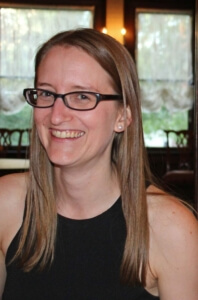 When the pandemic began, all members of our core staff had been working as a high-high-functioning team for just over a year. Each team member was blossoming in their role. We were reaching youth, engaging partners and donors, writing grants and raising funds, while also recruiting new folks to help us serve. Additionally we had awesome long-term contractors and an amazing group of volunteers. We had young people scheduled to perform at numerous events, including some for a nationwide audience of 900 people in Denver for a conference.
When the pandemic began, all members of our core staff had been working as a high-high-functioning team for just over a year. Each team member was blossoming in their role. We were reaching youth, engaging partners and donors, writing grants and raising funds, while also recruiting new folks to help us serve. Additionally we had awesome long-term contractors and an amazing group of volunteers. We had young people scheduled to perform at numerous events, including some for a nationwide audience of 900 people in Denver for a conference.
Then on March 3, 2020, just a few short hours after we submitted one of our biggest grant applications of the year, it began raining in the office. That rain turned into a downpour in almost all of our spaces. Within the hour, we learned that a main sprinkler pipe on the top floor of our building had been damaged and the entire building was flooding. It was an all hands on deck situation (pun intended) as the staff pulled youth art and photos from the walls to protect them from the rain, unplugged all the computers, bagged the printer, server, and other tech, and gathered and carried any equipment and furniture we could get out. The rain continued for HOURS. Little did we know that was not going to be our biggest upheaval of the year…
A week later, when the rain stopped and the office was in complete disarray, I remember standing in the adult workshop room with Laura after having read the news that COVID-19 cases were popping up in Colorado. Partners were starting to cancel workshops, then schools were closed, then the entire state was closed. We thought it would be for two weeks, a month max.
But two weeks can feel like a lifetime for a youth (or really, anyone) who is struggling and has had their support systems taken away and safe spaces closed. While state officials were rolling out “safer at home” measures, for many of the youth we serve, home is not a safe place or a place where their needs are met.
Our programs staff immediately got to work adapting workshops for a virtual format, carefully selecting prompts that would promote creative expression. Our biggest concern was that the young people’s own responses may elicit strong feelings without a trained facilitator present. How do we best facilitate through a screen?
Operations staff began dealing with the fallout of canceled events and performances, many of which were fundraising activities for the agency so we can continue to support the program. Our grant funders had mixed reactions to the pandemic. Some foundations closed up shop and stalled all funding applications and awards until the dust settled, fearful of the economic downturn that could affect their reserves. Other funders doubled down and gave more, recognizing that organizations that are vital to our survival as a community and society were about to hit a critical moment when resources would dry up and the need for services would exponentially increase. (THANK YOU to all the funders that supported us and other community programs in this difficult time!) We reached out to our individual donors and business sponsors to say hello, we hope you are ok and healthy, and is there anything we can do for you?— making a point to support the businesses that had been supporting us and were now in need of our community to keep them open.
Despite the physical distance that our team experienced, we grew to better understand ourselves and one another as we continued to meet weekly via Zoom and chat on Slack. Our Executive Director and founder, creator of the Phoenix Rising curriculum, recognized our own need to express, connect, and transform the challenges we were facing as individuals and a community and began doing prompts with us every week. Just as youth in our workshops connect with one another and build stronger bonds over the course of a workshop series, so did we through these prompts that became part of our weekly staff meetings.
Despite our internal and individual struggles, we came together to serve a greater good and take steps where we could to support the youth and keep the agency and program operational. By continuing to provide services and by amplifying the voices of the youth, we publicly proclaim that youth have value and that their voices MATTER. In a normal year, we meet with youth in places where they gather. But with the pandemic and social distancing guidelines, we were unable to do so, greatly hindering our ability to reach youth, especially those without reliable internet access. To address this, we expanded our offerings to include Phoenix Rising Writing Kits with a journal, pen, prompts, and tactile items to allow youth to continue to create. We also provided opportunities for youth to perform in virtual settings, continuing to provide platforms for their voices to be heard.
Many of the youth we serve were already dealing with racism, ageism, sexism, poverty, neglect, and many other challenges prior to COVID-19.
These challenges were exacerbated by the current global crisis and that racial and social reckoning gripping our nation. Racism is another pandemic: an ongoing public health crisis that must be addressed. In 2020, we saw members of the community recognize for the first time the systemic racism and centuries old struggles many our youth still face today. Injustices our youth have written and spoken about since our inception were being heard and acknowledged on a national scale. Poetry and expression were also in the spotlight thanks to the recent inauguration performance by Amanda Gorman. Despite all the awfulness of the last year (and the backlash and hate that is sadly always present when injustices are publicly called out), there is hope that we as a community can learn, grow, and support one another. In the meantime, there’s a lot of work for us all to do to ensure that youth are heard and that equity is achieved.
Personally, I feel as though so much in my life changed, but also, not a whole lot is different. I’m home a lot more, and am grateful that I got to spend more time with my aging dog who needs a lot more attention these days. I’ve heard of all these people who have new hobbies, who have learned to play instruments or speak new languages. Some have learned how to bake and garden or have written a novel. I was not one of those people who developed a new hobby or even had one second of boredom.
This past year I’ve worked harder than I’ve ever worked in my life as the reasons I serve at Art from Ashes have never been more clear to me.
The biggest challenge for me was dealing with the grief and loss of life, isolation, and the loss of community as long-time community gathering places closed up shop. I also felt so defeated that all the hard work and planning that had gone into setting up our events, fundraising, programs and performances opportunities for youth in 2020 was washed away with COVID, forcing us to start with a clean slate and rebuild a curriculum that has worked so well in person for over 18 years. This past year I’ve learned to dig deep, work hard, adapt, and to appreciate the challenges and successes along the way. And most importantly to appreciate my health, maintain perspective, and continue to build connections with my community, even though the way I engage with my community has drastically changed.
So here’s to the After Times! I think we’ll have a new-found appreciation for our time spent together in person, talking, laughing, HUGGING! It’s true what they say, you don’t know what you’ve got til it’s gone. I can’t wait to actually laugh with folks without the use of emojis or gifs.
Photos
[slideshow_deploy id=’12620′]
Ways to Beat the Burnout
…really, we can help.
“Sometimes it’s about giving someone an ear to listen to what they say. The workshops bring forward kindness and acceptance.”
Hi Catherine and Art from Ashes team,
I have shivers running down my spine reading this article and watching your sites video (on Instagram). This space and concept touches the depths of my heart. I myself was silenced, scared and in solitude as an adolescent. Part of my purpose and passion for creating space is to ignite the fire within the youth and give them the space to dance with it whether that be through physical or mental movement. We don’t get a second chance at our youth and I believe what you have created is absolutely invaluable to firing and wiring the brain for success, love, vulnerability and courage.
Thank you for all that you do.
With gratitude and inspiration,
“I’ve been reflecting on a lot the past few years and how I shifted my life and surroundings! It’s because of YOU and everyone at AfA taught me that shit at such a crucial point in my life! I will always have love and gratitude for you and everyone at AfA! Now that I’m finally fully focused back on my music and art, I had to message you in a letter format to tell you how much you mean to me ♡“
